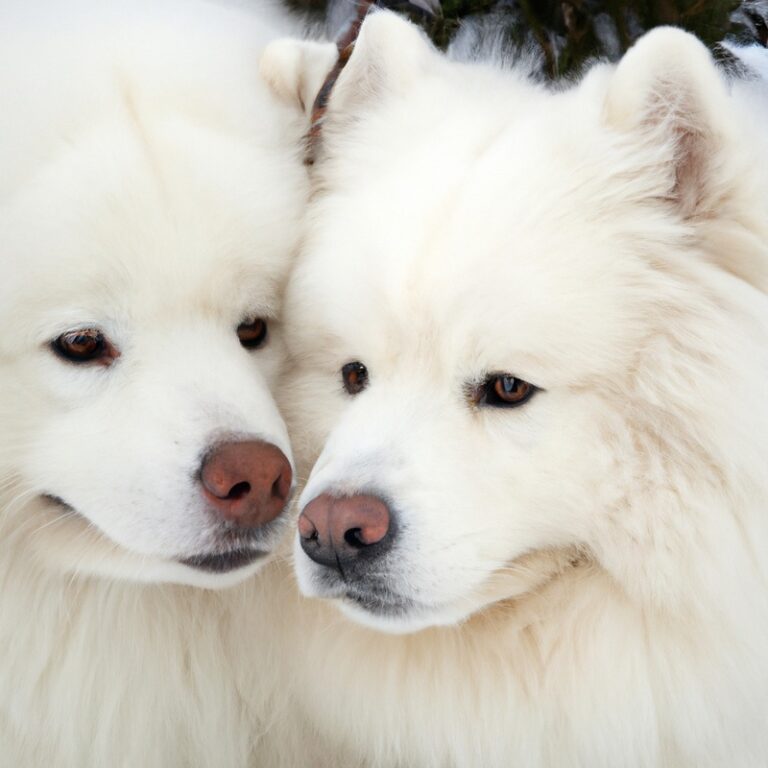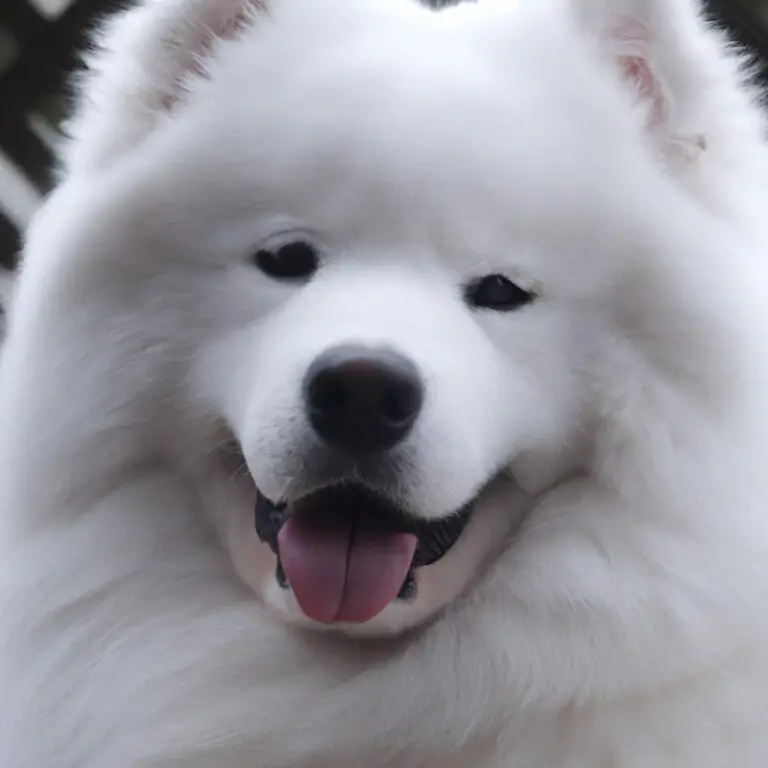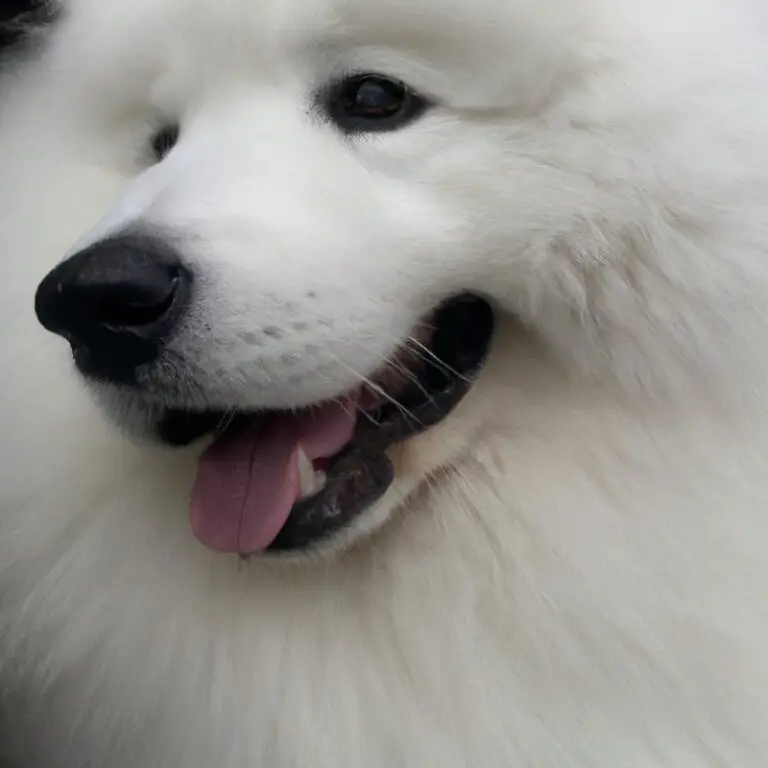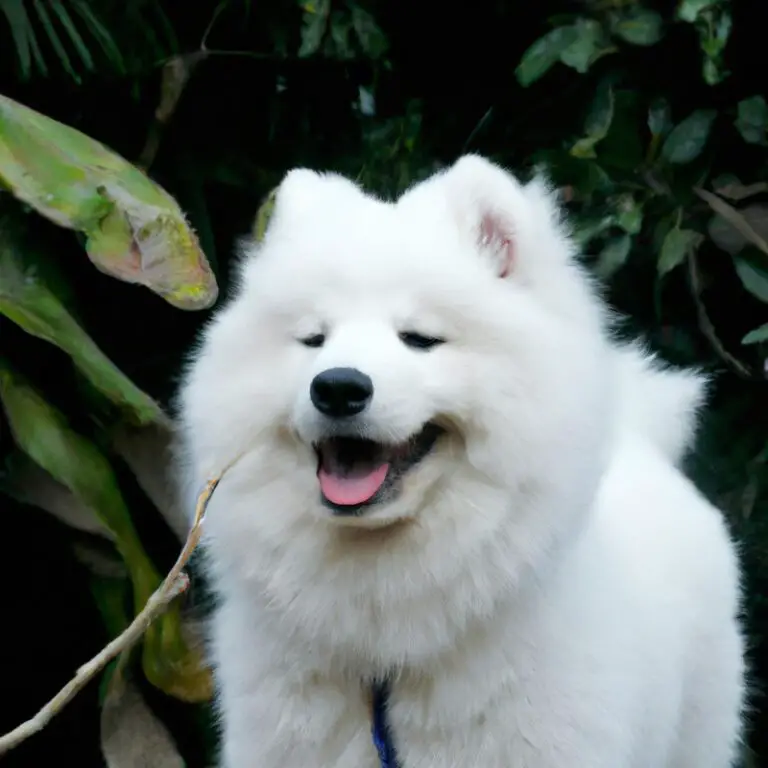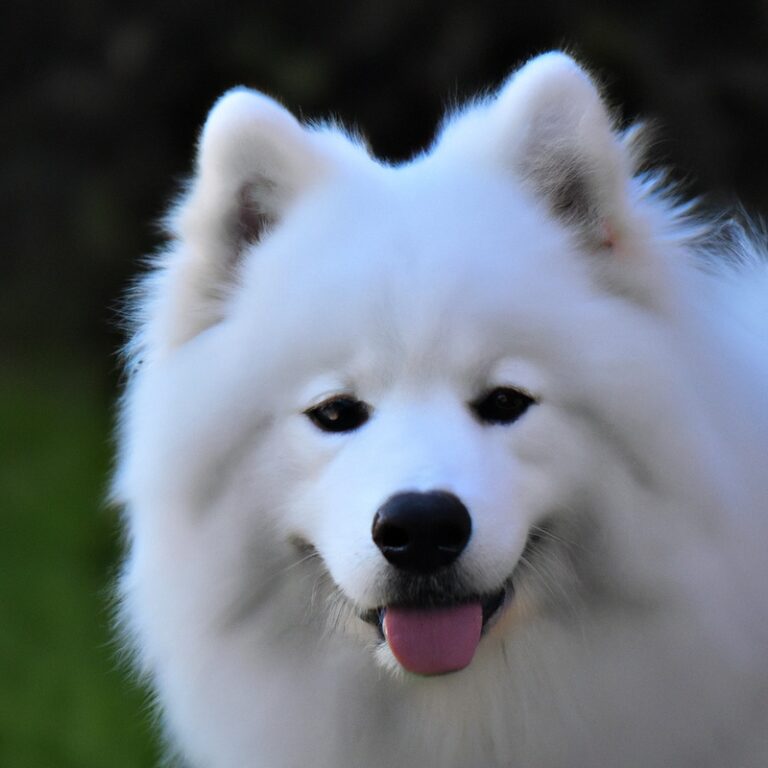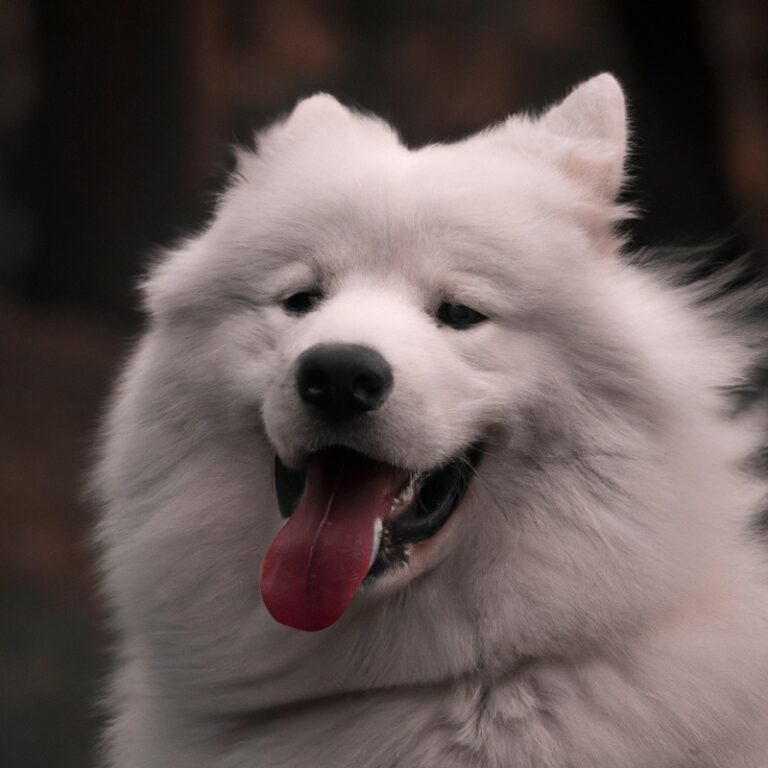Can Samoyeds Be Trained For Search And Tracking Tasks?
Key Takeaways:
- Samoyeds can be trained for search and tracking tasks due to their high intelligence and willingness to please.
- Their friendly and social nature also makes them suitable for search and rescue work.
- Samoyeds excel in cold weather conditions, making them well-suited for tracking tasks in snowy and icy terrains.
- Proper training and socialization are key for Samoyeds to succeed in search and tracking tasks.
Are Samoyeds capable of becoming expert search and tracking dogs? If you’re a fan of these fluffy and friendly Arctic canines, you might be wondering if their lovable nature translates into effective working abilities.
Well, I’m here to tell you that these beautiful dogs are more than just pretty faces! In this article, we’re going to delve into the world of search and tracking tasks for dogs, as well as explore Samoyeds’ trainability and the factors to consider when training them for such tasks.
So, prepare to be amazed as we uncover the hidden talents of these remarkable snow-white pups!
| Yes | No | |
| Pros | Samoyeds are intelligent and eager to please, making them trainable | Samoyeds are independent and may not have the necessary drive for search and tracking tasks |
| Cons | Samoyeds have a strong prey drive, which can be harnessed for search and tracking tasks | Samoyeds require consistent and patient training to excel in search and tracking tasks |
| Nutrition | Samoyeds require a balanced diet rich in protein to support their active lifestyle | Samoyeds require a specific diet tailored to their individual needs |
Search and tracking tasks for dogs
Explanation of search and tracking tasks performed by dogs
Dogs are highly skilled in performing search and tracking tasks. Their extraordinary sense of smell allows them to track scents over long distances.
They can be trained to search for missing objects or people, detect narcotics or explosives, and assist in search and rescue operations.
With their keen sense of smell and ability to follow scent trails, dogs are invaluable in locating and tracking individuals or substances. From finding lost hikers to assisting law enforcement, dogs play a vital role in search and tracking tasks.
Key requirements for dogs in search and tracking tasks
When training dogs for search and tracking tasks, there are several key requirements to keep in mind.
- Strong scenting ability: Dogs used for search and tracking should possess a keen sense of smell to effectively locate and identify scents.
- Physical stamina: These tasks often require dogs to work for extended periods and cover large distances. Dogs should have good endurance and be physically fit.
- Trainability and focus: Dogs should have a high level of trainability, be able to follow commands, and maintain focus on the task at hand.
- Sociability: Dogs working in search and tracking tasks often need to interact with various people and other animals. They should be friendly and comfortable in different environments.
- Resilience and adaptability: These tasks can involve challenging and unpredictable conditions. Dogs should be able to handle stress, adapt to changing situations, and remain calm.
Remember, thorough training and consistent practice are essential for dogs to excel in search and tracking tasks.
Can Samoyeds be trained for search and tracking tasks?
Overview of Samoyeds’ trainability
Samoyeds are known to have a moderate level of trainability. They are intelligent and eager to please, which can make training easier.
However, they also have an independent streak and can be stubborn at times.
It’s important to use positive reinforcement techniques and be patient and consistent with your training. Start with basic commands and gradually build up to more complex tasks.
Socialization is also key, as Samoyeds can be prone to developing separation anxiety if not properly trained and socialized.
Regular training sessions and positive interactions will help them become well-behaved and obedient companions.
Factors to consider for training Samoyeds in search and tracking tasks
Training Samoyeds for search and tracking tasks requires careful consideration of several factors.
Firstly, their strong sense of smell and intelligence make them well-suited for these tasks.
Secondly, their friendly and people-oriented nature enables them to work effectively with handlers.
Additionally, their endurance and physical capabilities help them navigate various terrains during search operations.
To train them effectively, it’s important to provide consistent and positive reinforcement, use high-value rewards, and establish clear communication cues.
Regular exercise and mental stimulation are also crucial for their well-being and focus in search and tracking activities.
Training Samoyeds for search tasks
Basic obedience training for Samoyeds
Basic obedience training is essential for Samoyeds. It helps them become well-behaved and obedient companions.
Start with basic commands like sit, stay, and come.
Use positive reinforcement, such as treats and praise, to reward good behavior. Consistency and patience are key.
Gradually introduce more commands and work on leash training.
Socialize your Samoyed with other people and dogs. Remember to keep training sessions short and fun.
With time and practice, your Samoyed will become a well-trained and obedient family member.
Conditioning and introducing search and tracking commands to Samoyeds
Conditioning and introducing search and tracking commands to Samoyeds is a gradual process. Start by building a strong foundation in basic obedience training.
Once your Samoyed has mastered basic commands like sit, stay, and come, you can introduce search and tracking commands.
Use positive reinforcement techniques such as treats and praise to motivate your Samoyed. Start with simple searches and gradually increase the difficulty.
Consistency and patience are key.
With time and practice, your Samoyed can become proficient in search and tracking tasks.
Practical exercises and simulations to prepare Samoyeds for search tasks
To prepare Samoyeds for search tasks, practical exercises and simulations are excellent training methods.
These exercises can include scent detection games, where you hide objects with specific scents for your Samoyed to find.
You can also create mock search scenarios, like hiding people or objects in different areas for your Samoyed to locate.
Gradually increasing the complexity of these exercises will help develop their search and tracking skills.
Additionally, participating in search and rescue training programs can provide more structured simulations to further enhance their abilities.
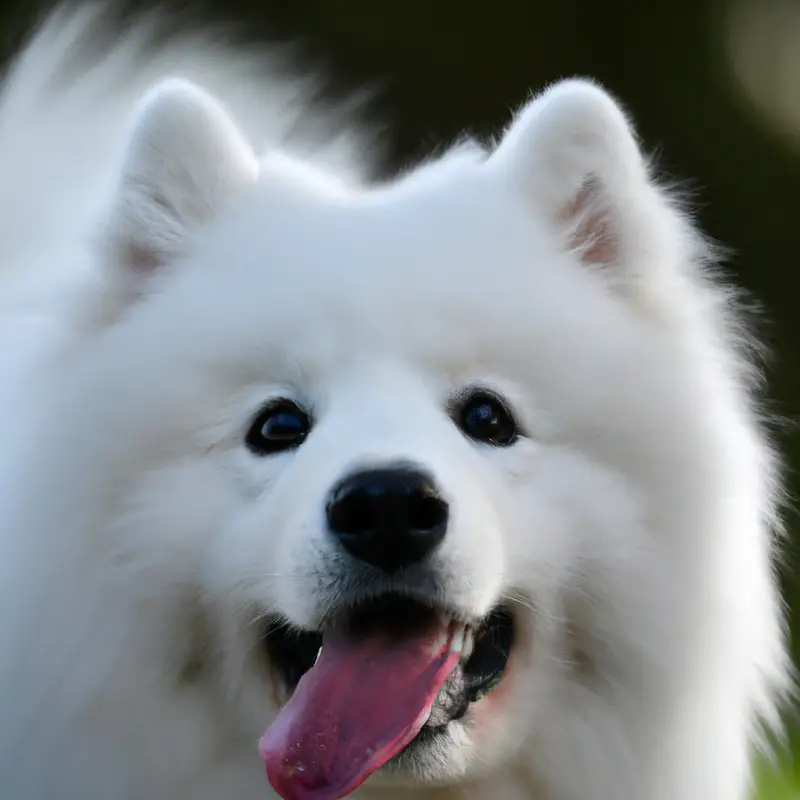
Additional considerations for training Samoyeds for tracking tasks
Understanding Samoyeds’ natural instincts and behaviors
Samoyeds have a strong natural instinct to herd and protect, stemming from their history as working dogs in Siberia. They are friendly and social dogs that love being around their family.
Samoyeds are known for being alert and watchful, making them excellent watchdogs.
They are also highly intelligent and have a strong prey drive, which means they may chase small animals. It’s important to provide them with mental and physical stimulation to prevent boredom and destructive behaviors.
Regular training and socialization are essential for a well-behaved Samoyed.
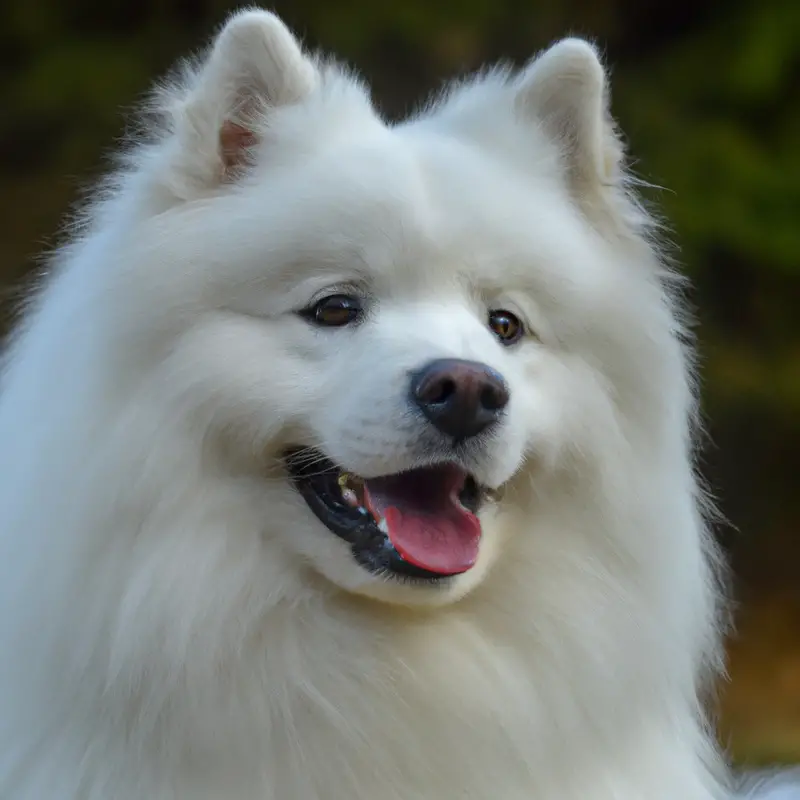
Techniques for developing tracking skills in Samoyeds
Developing tracking skills in Samoyeds requires consistent training and positive reinforcement. Start by introducing scent games and teaching your dog to follow a scent trail.
Use rewards like treats or toys to incentivize progress.
Gradually increase the difficulty level by covering longer distances and using more complex scent trails. Practice in different environments to improve your dog’s ability to track scents in various conditions.
Regular training sessions and patience will help your Samoyed become an excellent tracker.
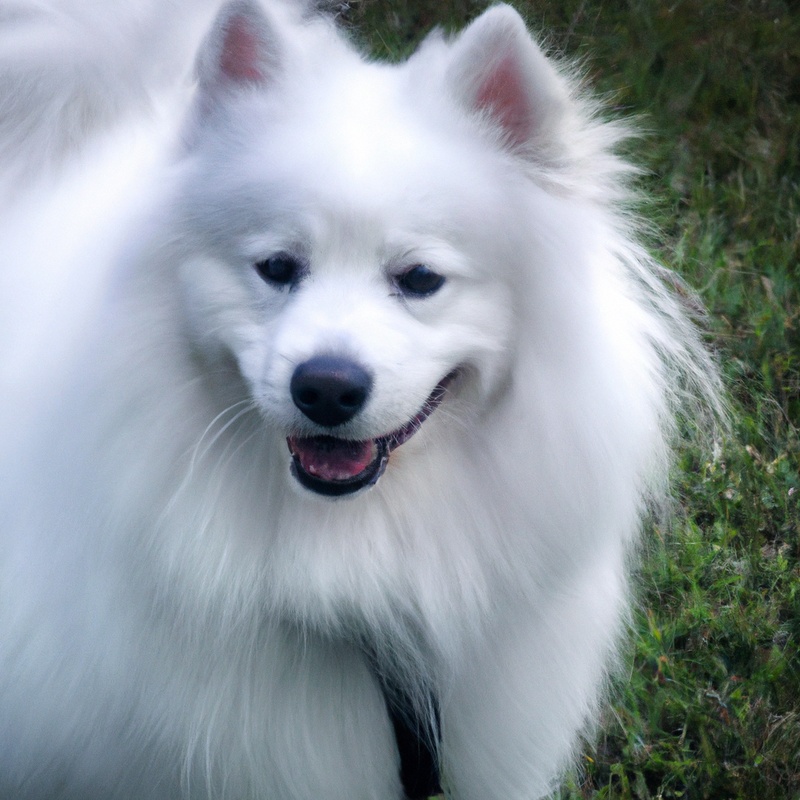
Using positive reinforcement to reinforce tracking behaviors in Samoyeds
Using positive reinforcement is an effective way to reinforce tracking behaviors in Samoyeds.
By rewarding desired behaviors, such as following a scent or staying focused on a track, you can encourage your Samoyed to continue exhibiting those behaviors.
Treats, praise, and play can all be used as rewards.
Consistency is key – be sure to reward your Samoyed immediately after they display the desired tracking behavior.
With time and patience, your Samoyed can become skilled in tracking tasks.
Frequently Asked Questions about training Samoyeds for search and tracking tasks
Can all Samoyeds be trained for search and tracking tasks?
Yes, all Samoyeds have the potential to be trained for search and tracking tasks. However, it’s important to keep in mind that individual temperament and characteristics can vary among Samoyeds.
Some may have a stronger instinct for these tasks and may require less training, while others may need more time and patience.
It’s important to start training early, use positive reinforcement techniques, and be consistent in your approach. Additionally, proper socialization and exposure to various environments can also enhance their abilities in search and tracking.
How long does it take to train a Samoyed for search and tracking tasks?
Training a Samoyed for search and tracking tasks can take several months to a year, depending on the dog’s temperament, learning ability, and previous training experience. Consistency, positive reinforcement, and patience are key when training a Samoyed for these tasks.
It’s important to start with basic obedience training before moving on to specific search and tracking exercises.
Regular practice sessions coupled with gradual progression will help the Samoyed become proficient in these tasks over time.
Are there any specific health issues that can affect a Samoyed’s ability to perform search and tracking tasks?
Samoyeds are generally healthy dogs, but there are a few health issues that can potentially affect their ability to perform search and tracking tasks. One such issue is hip dysplasia, which can lead to joint pain and mobility problems.
Eye conditions like progressive retinal atrophy can also impact their vision.
Another concern is hypothyroidism, which can cause lethargy and weight gain. Regular check-ups with a veterinarian and proper care can help minimize these risks and ensure your Samoyed stays fit for search and tracking tasks.
Final Verdict
I firmly believe that Samoyeds can be trained for search and tracking tasks.
While they may not be the most common breed for this type of work, their intelligence, strength, and endurance make them well-suited for the job.
With the right training and approach, Samoyeds can excel in search and tracking tasks, using their keen sense of smell and natural instincts to aid in the search for missing persons or objects.
So, if you’re considering training a Samoyed for search and tracking tasks, rest assured that with proper training and patience, they can be a reliable and effective asset in this field.

